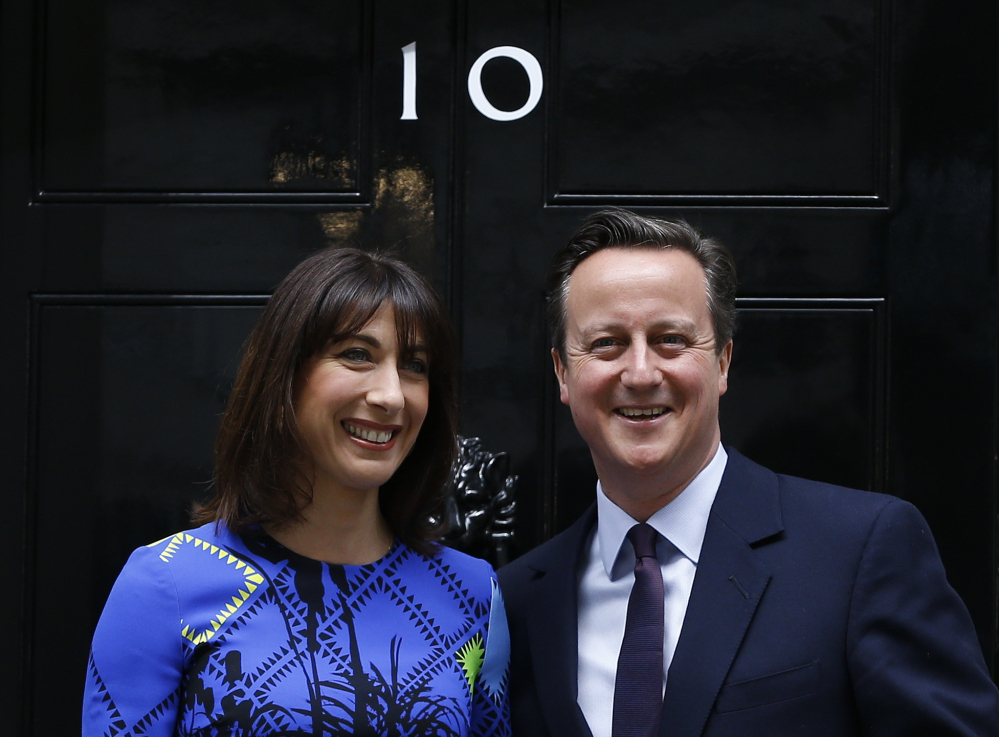LONDON — After years of sharing power, David Cameron pulled off an unexpected election triumph that gave the Conservative prime minister a second term with an outright majority Friday and dealt a stinging defeat to his three main rivals.
Standing before the glistening black door of 10 Downing St., Cameron pledged to govern as the party of “one nation, one United Kingdom.” But he faces a fractured Britain – divided by rich and poor, by separatist gains in Scotland and by doubts over its place in the European Union.
The election ushers in a new era in British politics, with veteran lawmakers ousted by a public that made clear it had lost trust in its political leaders. The victors included a 20-year-old Scottish nationalist who beat out a senior Labour Party leader.
It was also unexpected. Polls had predicted a dead heat – a result that would have meant days of haggling to form a new government. Queen Elizabeth II was out of town at her castle in Windsor, and needed to rush back to London for the traditional meeting at Buckingham Palace in which the victor offers to form a government.
By the time Cameron met the monarch all three of his major rivals had resigned: Ed Miliband of the Labour Party, Nick Clegg of the Liberal Democrats and Nigel Farage of the U.K. Independence Party.
For the losers, Cameron offered sympathy. “Elections can be bruising clashes of ideas and arguments, and a lot of people who believe profoundly in public service have seen that service cut short,” he said.
The surprising outcome merely underscored how much things have changed – that there is now a new unpredictability in British politics. The idea of two big parties squabbling over the spoils is over. There are new players – and some are very young. Some don’t even want a United Kingdom at all.
“For the new government, it is not possible to carry on business as usual,” said Murray Pittock, a professor at the University of Glasgow. “Such a course is not a sustainable or good course to ensure the survival of the UK.”
With the Conservatives winning an outright majority in the 650-seat House of Commons, the result looked to be far better for Cameron than even his own party had foreseen. The Conservatives had 331 seats, Labour 232.
But the new ruling class inherits a country divided by negative campaigning and infighting about the future. Fought largely over the economy, the race revolved around the question of whether the Conservative-led government charted the right course through the aftermath of the 2008 economic crisis, the worst recession since the 1930s.
Cameron argued his party needed time to cement its successes after five years of budget cuts designed to shrink the deficit and bolster growth.
Send questions/comments to the editors.



Success. Please wait for the page to reload. If the page does not reload within 5 seconds, please refresh the page.
Enter your email and password to access comments.
Hi, to comment on stories you must . This profile is in addition to your subscription and website login.
Already have a commenting profile? .
Invalid username/password.
Please check your email to confirm and complete your registration.
Only subscribers are eligible to post comments. Please subscribe or login first for digital access. Here’s why.
Use the form below to reset your password. When you've submitted your account email, we will send an email with a reset code.